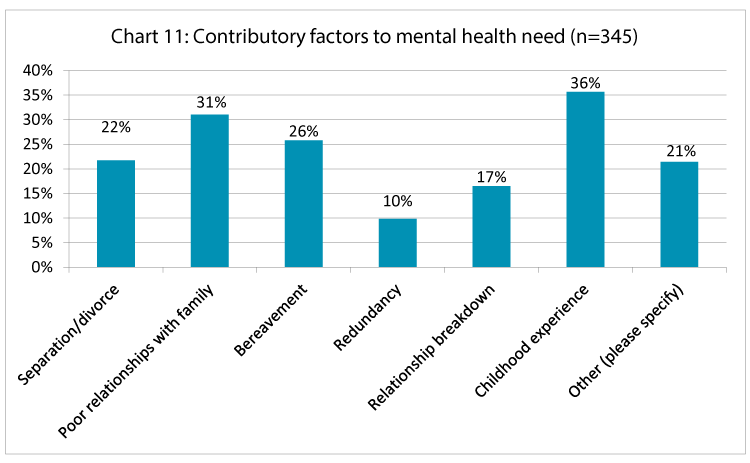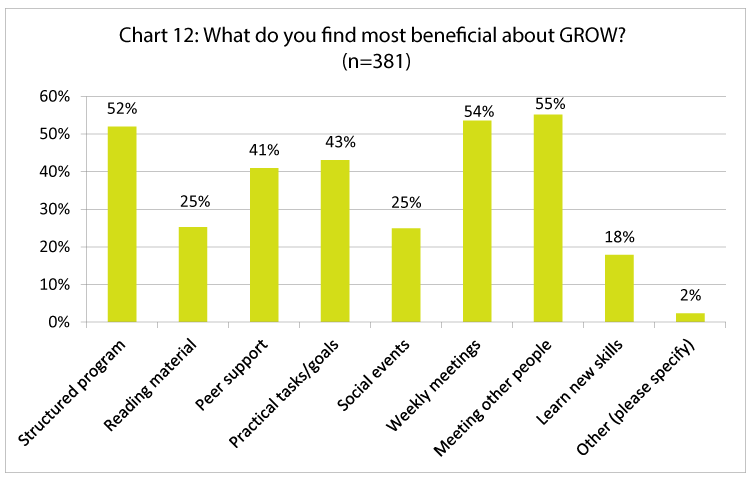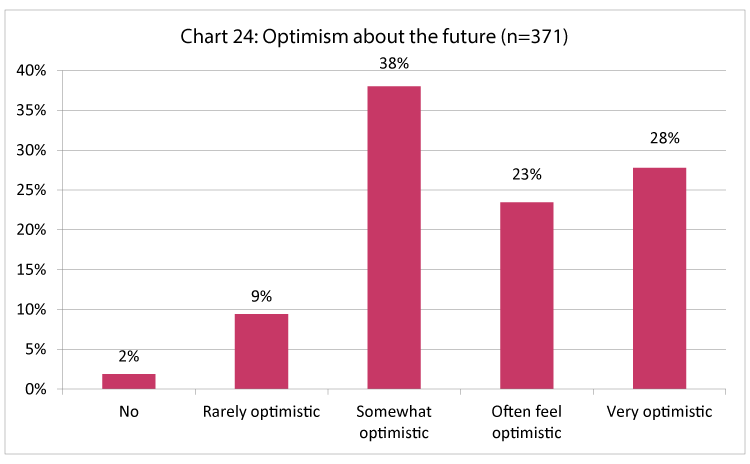Transformative Power of GROW
less likely to say they were 'bothered' by their symptoms
more likely to be coping well with their mental and emotional well-being
less likely to have had a relapse in the last year
more likely to participate in community activities regularly
more likely to achieve a personal goal
have a positive effect on employment
more likely to have a positive sense of their self-esteem
more likely to feel 'very optimistic' about the future
Unlikely to require hospitalisation for mental health reasons
More likely to take part in physical exercise



Relax
These tips and videos will help you to release stress and tension and slow down your racing mind.
Exercise
Yes, we know. You don't feel like doing anything. Have a look, you might find something inspiring. Go on!
Sleep well
Poor sleep leads to worrying. Worrying leads to poor sleep. You'll find great advice to break the vicious cycle.
